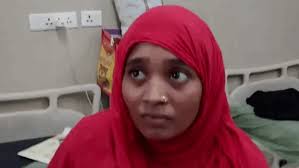In the dead of night on September 30, Shama Parveen, a pregnant woman in Uttar Pradesh, was rushed to the district women’s hospital. Her husband, Mohammed Nawaz, pleaded with the on-duty doctor to examine her. The response? “She is Muslim, take her elsewhere.”
This chilling statement—reported by Deccan Herald—is not an isolated incident. It is a symptom of a deeper rot: the normalization of anti-Muslim discrimination in India. From bulldozers demolishing homes under flimsy pretexts to police harassment over innocuous social media posts like “I love Mohammed,” Indian Muslims are increasingly being treated as second-class citizens in their own country.
India was founded on the promise of secularism and equality. Yet today, that promise is being systematically dismantled. The refusal to treat a pregnant woman solely because of her faith is not just medical negligence—it is dehumanization. It echoes the logic of segregation, where access to basic human rights—healthcare, housing, dignity—is contingent on religious identity.
Uttar Pradesh has become a laboratory for this new form of state-sanctioned exclusion. Bulldozer justice, often deployed selectively against Muslim neighborhoods after communal incidents or even minor infractions, sends a clear message: your home, your livelihood, your safety are conditional. Meanwhile, expressing affection for the Prophet Mohammed online can land you in jail or worse—subjected to mob violence or police brutality. These are not fringe occurrences; they are part of a pattern of institutionalized othering.
Calling India an “undeclared apartheid state” may sound extreme to some, but apartheid is not only about laws—it is about lived reality. When a community is routinely denied equal protection under the law, equal access to public services, and equal dignity, the label becomes tragically apt. South Africa’s apartheid regime didn’t begin with grand proclamations; it began with everyday acts of exclusion, justified by fear and prejudice.
The silence from large sections of civil society and mainstream media is deafening. Medical ethics, constitutional morality, and basic humanity demand that we speak out when a doctor turns away a woman in labor because of her religion. We must ask: What kind of nation are we becoming if compassion has a religious filter?
The Indian Constitution guarantees the right to life and equality regardless of religion. Yet, when state actors—from doctors to police officers to municipal officials—act on communal bias with impunity, those guarantees ring hollow. Accountability is rare; justice, rarer still.
It is time to confront this reality head-on. Not with hyperbole, but with truth: India is sliding into a system where citizenship is increasingly defined by faith. And if we do not resist—through courts, through protests, through everyday acts of solidarity—then stories like Shama Parveen’s will become the norm, not the exception.
In a democracy, no one should be told, “Take her elsewhere,” when her life is at stake. Especially not in the name of religion.










